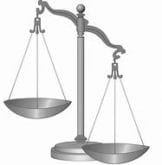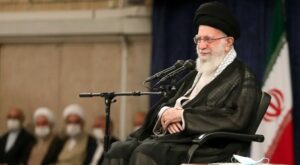RFL/RE – With U.S. sanctions cutting into Iran’s oil exports and global trade, Iranian businesses have been looking to expand their presence in a traditional market — Iraq.
For Iranian companies, the annual Baghdad International Fair taking place this week is a major event that attracts exporters of carpets, foodstuffs, and heavy equipment.
Iran’s ambassador to Iraq, Iraj Masjedi, vowed that this year Iran will expand its already flourishing trade with Iraq, which like Iran has a majority Shi’ite Muslim population. The two neighbors have extensive cultural and historic ties.
The U.S. sanctions, he said, “will not affect the relations between the two countries.”
U.S. President Donald Trump reimposed sanctions on Iran this month after pulling the United States out of Iran’s 2015 nuclear agreement with world powers, which granted Tehran sanctions relief in exchange for curbs on its nuclear activities.
Since Trump announced what he touted as the “toughest-ever” sanctions against Tehran, the country has seen its oil exports plunge and its currency lose more than half its value.
While other world powers in Europe, Russia, and China have said they will continue to honor the nuclear deal and do business with Iran, businessmen at the Baghdad fair said the U.S. sanctions had made it much harder for them to sell to those countries.
“Our company’s not on the sanctions list, but it’s made business more difficult in Europe. We had a contract with a British company which cancelled recently,” Hamed Shahinmehr, an Iranian petrochemicals company representative, told Reuters.
“That makes Iraq one of our best bets now,” he said.
Iraq is Iran’s second-largest export market. Masjedi said that trade between the two countries was on track to reach $8.5 billion this year, and Iran hopes to expand bilateral trade to $22 billion annually.
Technically, under the U.S. sanctions companies are free to do business with Iran, so long as they do not use the U.S. dollar or go through U.S. financial institutions or also do business in the U.S. market.
“We will not tie ourselves to the dollar,” Masjedi said. He said more than 60 Iranian companies were represented at the Baghdad fair, which runs through November 19.
Mir Zad, director of Hisam, which sells generators and other electrical equipment, said he was aiming to secure deals worth around $1 million at the fair. He wasn’t concerned about the sanctions, saying deals could be made in Iraq’s currency, the dinar.
Still, a substantial portion of trade between the two countries involves energy sales and cannot easily escape the sanctions regime.
Iraq finds itself in a delicate position on the question of trade with Iran, as Baghdad sees both Washington and Tehran as allies. But while Iraq looks to Washington as a partner in military matters, it has developed extensive economic ties with Iran over many decades.
Years of war in Iraq have left its electricity sector in tatters, and it has come to depend on Iranian gas and electricity generation to power its economy. A temporary electricity reduction last summer fueled unrest in Iraq’s southern provinces.
The U.S. Embassy in Baghdad last week announced it was granting Iraq a 45-day waiver to allow it to continue purchasing gas and electricity from Iran.
It said the exception would give Iraq time to “take steps toward energy independence.”
But economists said they doubt Iraq can wean itself off Iranian energy that quickly.
Iran’s deep involvement in Iraq’s political and military affairs further complicates the picture. Several of Iraq’s top politicians are seen as close to Iran, and Tehran trains, finances and advises some of the largest militias in the country.
Since May, Iran’s currency the rial has sank in the black market from 60,000 to 148,000 to the dollar. Oil exports fell from 2.5 million barrels per day in April to 1.85 billion in October and are expected to tumble further.
But Iraqis say the fall in Iran’s currency has made Iranian goods even more attractive to thrifty customers across the border.
“Most of our goods are Iranian. We get them from the crossings, and they’re very cheap. There’s little transport cost,” Dana Ali, an Iraqi shopkeeper in the northeast city of Sulaymaniyah, told Reuters.
“Iranian materials are very important for Iraq,” said Khalid al-Wali, an Iraqi businessman eyeing Iranian chemical supplies at the Baghdad fair. “Products coming from Iran are cheap. It’s a big source for raw materials.”
The Iranian chemical company’s representative said it was the first time the firm had come to Baghdad.
“Iraq is an attractive market to us. It’s right next door, and after years of war the country needs cheap supplies,” he said. “We’ve decided to come for the full 10 days of the expo.”
 Shabtabnews In this dark night, I have lost my way – Arise from a corner, oh you the star of guidance.
Shabtabnews In this dark night, I have lost my way – Arise from a corner, oh you the star of guidance.


